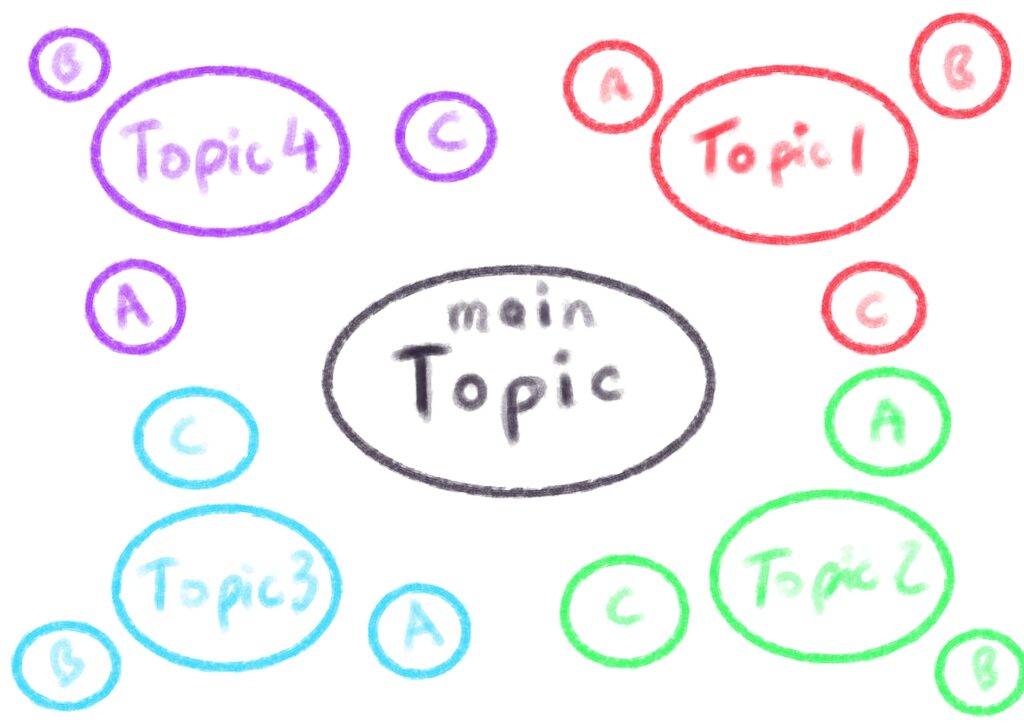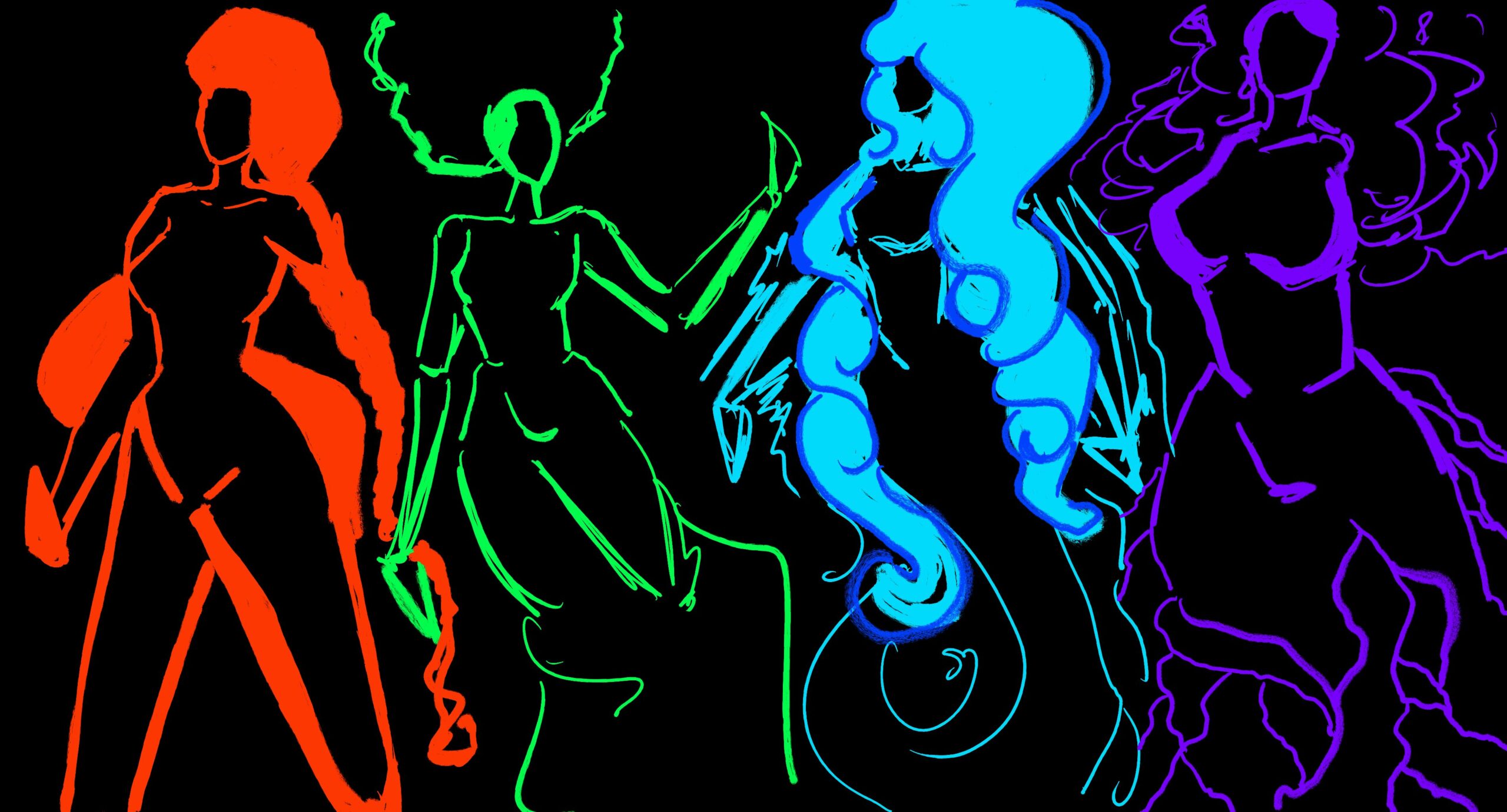
Summary – Your 4 Types of Adventure.
You can Create any kind of Adventure by answering 6 Questions:
1/What’s the Story’s genre?
Adventure, Action, Comedy, Drama, Horror
2/What’s the Setting?
3/Why choose this type?
4/What are the Advantages of this Story type?
5/What are the Limits of this Story type?
6/How can you Expand it?
Common traits to all 4 Types
- Starting your Adventure
- What’s the Story’s genre?
- Adventure
- Action
- Comedy
- Drama
- Horror
- What’s the Setting?
- Why choose this type?
- What are the Advantages of this Story type?
- What are the Limits of this Story type?
- How can you Expand it?
- Trigger
- What’s the 1st Event of the Story?
- What’s the 1st Crisis?
- How do you create Emotional attachment between the Character & the Story?
- How do the Story impact the Character’s Goal?
- How do you create Continuity between Stories?
- Start with a Story.
- And Continue with another Story.
- Between each Story
- What do the Characters do in their Downtime?
- How long can they Rest?
- How do they Rest?
- How do they Entertain themselves?
- What is Leisure for them?
- Are they Telling Stories?
- Do they cook together?
- Do they Share skills?
- Do they Train each other?
- Do they Create new Items?
Discovery
Discovery is Novelty.
It’s the easiest way to start a Story.
- Territory
- Which place are the Characters discovering?
- Why did they get to this Location?
- How did they get to this Location?
- Which Resources were they looking for?
- Did they expect to find this Location?
- Which Landmark revealed this Location?
- Which Creatures populate this Location?
- Which Plants can be found therein?
- Which Landscapes?
- Individual
- Which New Character will be met?
- What characterize her?
- What makes her Remarkable?
- What makes her Unique?
- Is she an Opponent?
- Is she a Support?
- How will she Create new Relationships?
- Solve an Issue
- What is the Issue?
- What is the Crisis faced?
- Is it a Mystery?
- What is the Problem?
- How should it be solved?
- Should the Characters discover the Identity of a perpetrator?
- Reveal
- What is the Solution?
- How is it a Revelation?
- How does it differ from what was expected?
- What’s the Nature of the Revelation?
- What makes it Surprising?
- What are its Consequences?
- On who?
- How does it Impact Character’s Evolution?
- After the Reveal
- A Discovery can be turned into another Story easily.
- It Opens the path to the other 3 types of Stories.
- Defeating
- What is the new Plot?
- Which Danger was exposed?
- Which Menace was discovered?
- Collecting
- Which Precious object was discovered
- Delivering
- Should the Character Bringing someone back?
- Is this person Alive?
- Is she Dead?
- Should they save this Person?
- Should the Character Bringing someone back?
Defeating
Defeating is Preventing.
- Overcoming
- What should the Characters Stop?
- Is it an Assassination?
- A sudden killing?
- The destruction of a Place?
- Of an Object?
- Who should they defeat?
- What should they defeat?
- Who should they capture?
- What should they capture?
- Target
- Who is the Target?
- Who is the Assailant?
- How should the Assailant be stopped?
- The main Strength of the Defeating story is its Straightforwardness.
- It may be considered too Simple.
- And may lack of Complexity.
- Adding Complexity
- Are there Multiple opponents?
- Are there Multiple Assailants?
- What are the Relationships between these opponents?
- How are they organized?
- Who leads these Organizations?
- Are there Inter oppositions?
- Between Organizations
- Are there Intra oppositions?
- In each Organizations
- Could there be Alignments shifts?
- What would trigger them?
- Who are the true Enemies?
- Which opponents are forced to act?
- Who is the Main Menace?
- What are the 2ndary Menaces?
- Is there an Hidden Menace?
This system of Complexification can be used for the other 3 types of Stories.
Delivery & Transport
Delivery often means Protection.
- Object
- What is the Nature of the object?
- What’s its Use?
- Is it not an Object?
- Is is a Person?
- What’s her Status?
- What’s her Value?
- For whom?
- What’s her Goal?
- Does she display her Will?
- Does she Restrain it?
- Does she Hide it?
- What are the Origins of this Delivery?
- Where does it Start?
- Destination
- Where should the Characters get?
- Why this Location?
- What makes it peculiar?
- What makes it Interesting?
- Which Resources does it shelter?
- How is it Defended?
- Obstacles
- What will impede the Characters?
- Which Menaces should they face?
- Which External Menaces should they face?
- Would someone try to Steal the Object?
- To Destroy it?
- To Kill it?
- To Neutralize it?
- Is it the Object itself?
- How Dangerous is it?
- Is it a threat to the Characters?
Collect
The Collect is a Competition.
- Competition
- How can the Characters get to the Target?
- How can they get to it Faster than their Opponents?
- How do they compete?
- In which Circuit?
- Do they all follow the same trajectory?
- How is Emulation created?
- How can they Prevent their Opponents to reach the Target?
- Who do they have Fight to get to the Target?
- What are the Trials on the way?
- How do they prevent the collect?
- Target
- Is it an Object?
- What’s its value?
- What’s its use?
- Is it a Person?
- Why this Person?
- How did she take part to this Competition?
- Why is she the target?
- Which skills does she possess?
- Who’s the sponsor of the Competition?
- What’s her relationship to the target?
- Adding Complexity
- How will the Character be Coming back?
- Which other Story will happen?
- Are there Multiple Items?
- How many are there?
- Is it a Collection?
- What makes it a Collection?
- Is it a Puzzle?
- Is it a Key?
- What’s the Coherence between the Items?

